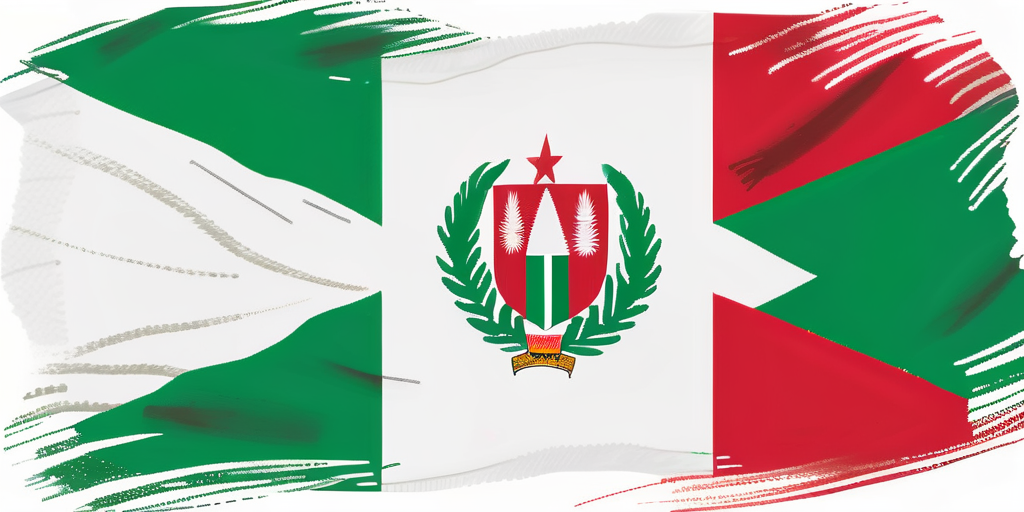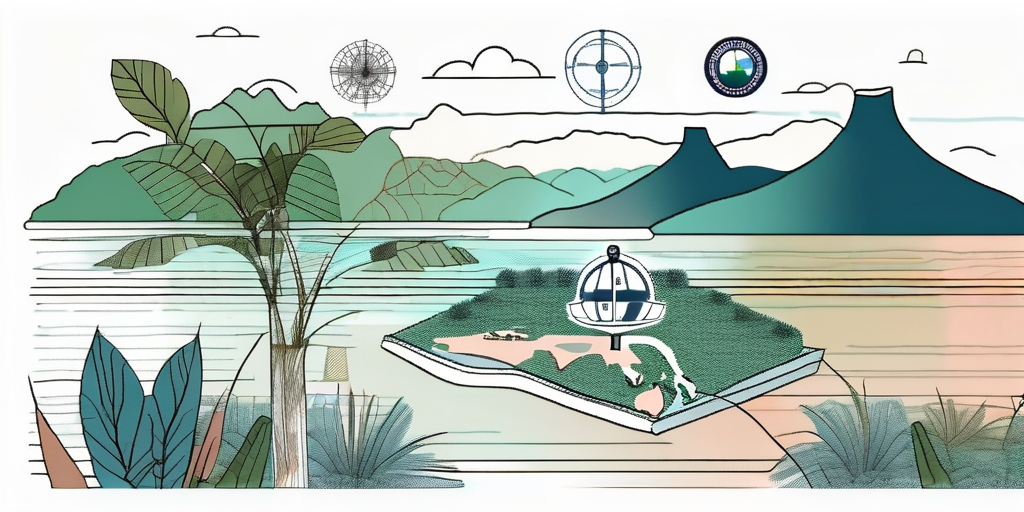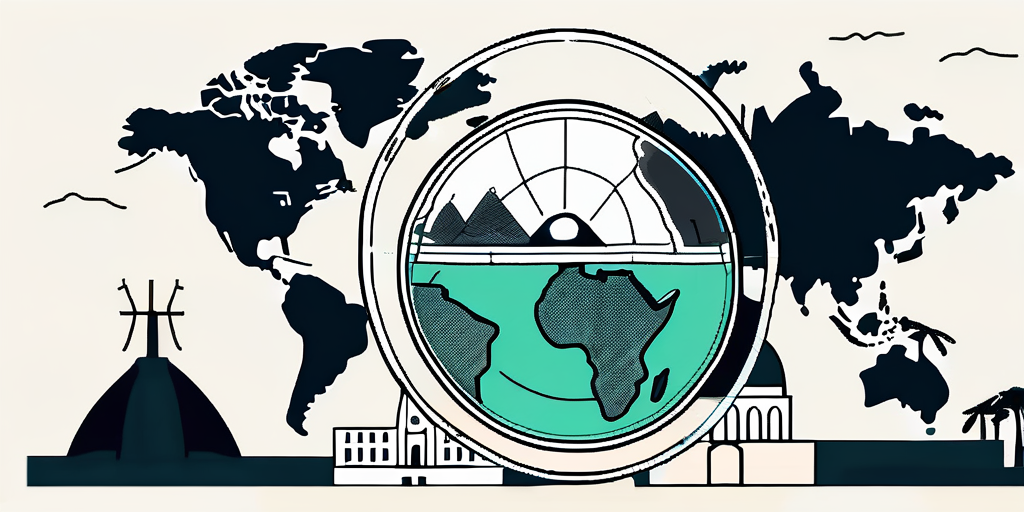Madagascar, a country located off the eastern coast of Africa, plays a crucial role within Interpol’s framework. Interpol, or the International Criminal Police Organization, is an intergovernmental organization that facilitates global police cooperation. Understanding Interpol’s framework is essential to comprehending Madagascar’s significance within this international organization.
Understanding Interpol’s Framework
Interpol operates on the principles of global law enforcement collaboration, with its primary goal being to promote international police cooperation. The organization aims to prevent and combat transnational crime, ensure public safety, and uphold the rule of law worldwide.
Interpol’s role in the international law enforcement landscape cannot be overstated. With 194 member countries, it serves as a crucial platform for sharing information, coordinating operations, and facilitating joint efforts to combat a wide range of criminal activities. From human trafficking and cybercrime to terrorism and drug trafficking, Interpol plays a pivotal role in addressing complex and evolving security challenges that transcend national borders.
The Structure and Function of Interpol
Interpol’s structure consists of the General Assembly, the Executive Committee, the General Secretariat, and National Central Bureaus. The General Assembly, composed of representatives from each member country, provides guidance and sets policies. The Executive Committee oversees the organization’s activities, while the General Secretariat in Lyon, France, serves as its headquarters. National Central Bureaus act as the contact points for member countries.
At the heart of Interpol’s organizational framework lies a commitment to inclusivity and collaboration. The General Assembly, where decisions are made by consensus, reflects the democratic nature of the organization, ensuring that the voices of all member countries are heard and respected. The Executive Committee, comprised of representatives from various regions, plays a crucial role in steering Interpol’s strategic direction and operational priorities, ensuring that the organization remains agile and responsive to emerging threats.
Key Principles Guiding Interpol’s Operations
Interpol operates based on several key principles, including neutrality, cooperation, universality, and integrity. Neutrality ensures that Interpol does not engage in political, military, or racial activities. Cooperation promotes collaboration among member countries in sharing intelligence and conducting joint investigations. Universality ensures that all member countries have equal rights and obligations within Interpol. Lastly, integrity guides the organization in maintaining transparency, accountability, and the highest ethical standards.
These principles form the bedrock of Interpol’s operations, underpinning its credibility and effectiveness in addressing global security challenges. By upholding these values, Interpol not only fosters trust among member countries but also reinforces its reputation as a reliable and impartial partner in the fight against transnational crime.
Madagascar’s Entry into Interpol
Madagascar’s membership in Interpol has been a significant milestone for the country. Joining Interpol has provided Madagascar with numerous benefits, including enhanced international cooperation in law enforcement and access to valuable resources and information.

Interpol, short for the International Criminal Police Organization, is a global network that facilitates cooperation among law enforcement agencies of different countries. By becoming a member of Interpol, Madagascar has gained access to a vast array of databases, tools, and training opportunities to combat transnational crime effectively.
Historical Context of Madagascar’s Membership
The historical context of Madagascar’s membership in Interpol dates back to XX. Since joining the organization, Madagascar has actively participated in various initiatives, demonstrating its commitment to global law enforcement collaboration.
Madagascar’s decision to join Interpol reflects its dedication to combating international crime and upholding the rule of law. By aligning itself with Interpol’s mission of making the world a safer place, Madagascar has shown its willingness to engage with the global community in addressing security challenges.
The Process of Joining Interpol
Joining Interpol involves a rigorous process. A member country must meet certain criteria, including having a stable political system, respecting human rights, and possessing effective law enforcement agencies. Madagascar successfully fulfilled these requirements, leading to its admission as a member state.
Upon meeting the stringent criteria set by Interpol, Madagascar underwent a thorough evaluation process to assess its capabilities in combating transnational crime. This evaluation included an examination of Madagascar’s legal framework, law enforcement infrastructure, and commitment to international cooperation. The successful completion of this evaluation paved the way for Madagascar to officially join Interpol, opening up new avenues for collaboration with law enforcement agencies worldwide.
Madagascar’s Contributions to Interpol
Madagascar’s active engagement in Interpol has made notable contributions to the organization’s mission of combating transnational crime. The country’s participation in joint operations and sharing of intelligence have significantly strengthened global law enforcement efforts.
Notable Cases and Operations
Madagascar has played a vital role in various notable cases and operations coordinated by Interpol. These operations have targeted diverse criminal activities, including drug trafficking, human trafficking, and cybercrime. Madagascar’s collaboration with other member countries has facilitated the successful apprehension of criminals and the disruption of criminal networks.
Madagascar’s Unique Contributions
Madagascar’s unique geographical location and cultural diversity have provided the country with a distinct perspective in combating transnational crime. The country’s cooperation with other nations in the Indian Ocean region has been instrumental in addressing shared security challenges and promoting regional stability.
The Impact of Interpol on Madagascar
Interpol’s presence and collaboration have had a profound impact on Madagascar’s law enforcement capabilities and international relations.

Enhancing Madagascar’s Law Enforcement Capabilities
Through its membership in Interpol, Madagascar has gained access to a vast network of law enforcement professionals and resources. The exchange of best practices, training programs, and technical assistance provided by Interpol has significantly enhanced Madagascar’s capacity to combat crime and ensure public safety.
Influence on Madagascar’s International Relations
Interpol’s platform has enabled Madagascar to strengthen its international relations with other member countries. Collaboration on law enforcement matters has fostered trust and cooperation, contributing to the overall improvement of diplomatic ties between Madagascar and its global partners.
Challenges and Opportunities for Madagascar within Interpol
While Madagascar’s membership in Interpol has been beneficial, it also faces various challenges and opportunities in the realm of international policing.

Overcoming Obstacles in International Policing
International policing involves dealing with complex challenges, including differences in legal systems and cultural norms across member countries. Madagascar, alongside other member states, must continue to work together to overcome these obstacles by promoting mutual understanding, cooperation, and the adoption of common frameworks.
Future Prospects for Madagascar in Interpol
Looking ahead, the future prospects for Madagascar in Interpol appear promising. The country has the opportunity to further strengthen its relationships within the organization, participate actively in capacity-building initiatives, and share its expertise with other member countries. By leveraging these opportunities, Madagascar can continue to play a vital role in advancing global law enforcement efforts.
In conclusion, Madagascar’s role within Interpol’s framework is critical in promoting international police cooperation, combatting transnational crime, and ensuring public safety. As a member state, Madagascar has made significant contributions to Interpol’s mission through participation in joint operations, sharing intelligence, and leveraging its unique geographical position. Interpol’s impact on Madagascar is evident through enhanced law enforcement capabilities and improved international relations. However, challenges persist, necessitating continued collaboration and the pursuit of future opportunities. Madagascar’s engagement in Interpol reflects its commitment to global security and the fight against transnational crime.
